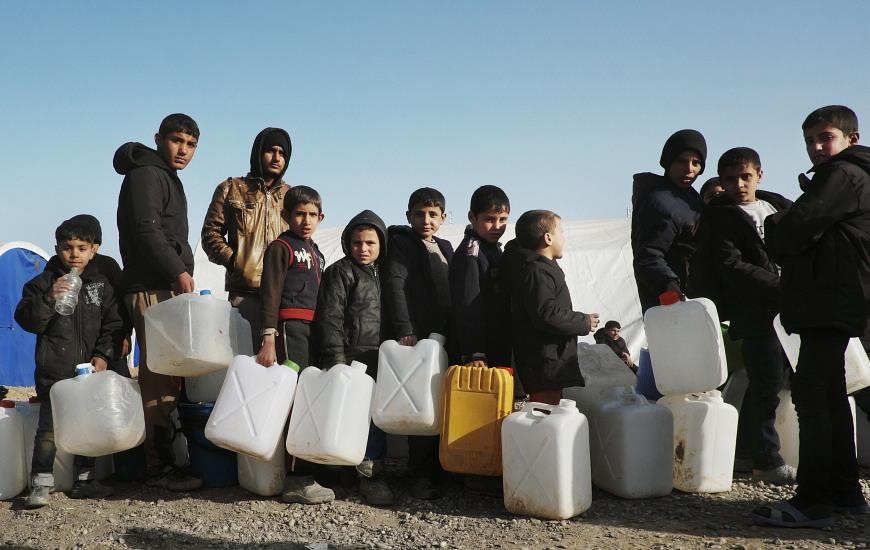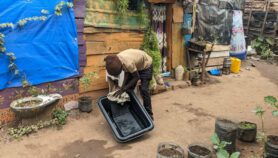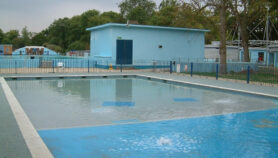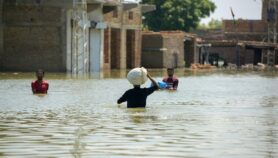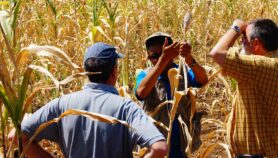Send to a friend
The details you provide on this page will not be used to send unsolicited email, and will not be sold to a 3rd party. See privacy policy.
Iraqi hospitals were overcrowded last week, as people fell ill after drinking contaminated drinking water in the city of Basra. And this was the starting point of a conversation between SciDev.Net and Hassan Janabi, the Iraqi Minister of Water Resources, during World Water Week which took place in Stockholm, Sweden (August 26-31).
The discussion touched on the country’s water crisis — including soil salinisation in irrigated areas and conflict with neighbouring countries over rights to the waters of the Tigris and Euphrates rivers. We also discussed solutions, the effect of Syrian refugees hosted by Iraq, and how the government manages to provide clean drinking water in a country that suffers from water scarcity.
Excerpts…
Not long ago, polluted water in Basra poisoned thousands of people. Could you elaborate on this incident and the reasons behind it?
We have very old infrastructure, and the drinking water distribution network in the ancient city of Basra is very outdated. The city has been a victim of many wars, and also abandonment, which has led to a neglect of the water network and its maintenance. As a result, sewage has leaked into drinking water in some areas, causing this incident of contamination.
The only way to avoid this problem is to invest in a new drinking water network with modern pipelines, and to improve treatment of Basra’s drinking water at the source. The water supply depends on the waters of the Shatt al-Arab river, which unfortunately has been heavily affected by salinisation due to several reasons — so fishing, agriculture and drinking water are no longer as they used to be in that area. There is a need to move towards seawater desalination, but of course this needs time, scientific research and investment.
What is your plan to address the rapidly growing soil salinity in Iraq?
Salinity in Iraqi territory is an old phenomenon. Salt is deposited and accumulated over time due to irrigation techniques. When we irrigate plants water evaporates, and some of the salt that was dissolved in that water gets left behind. If the salts are not continuously washed away from the soil, there will be a high salt content causing a major problem.
Because Iraq is an ancient country, and the practice of irrigation goes back to more than four thousand years ago, we need to inform and guide farmers on how to wash salt away from the soil.
All of Iraq's arable land — about 13 million acres — needs reclamation. Right now we are in the process of rehabilitating five million acres and clearing it of excess salinity.To solve the problem of salinisation, funding must be provided. Reclaiming lands will impact positively on the country and the economy, thus creating jobs and increasing agricultural productivity, all of which contribute directly to improving economic and social life.
But for the time being, with the problems Iraq faces, the country’s finances leave no space for such steps. We hope that the provisions of Iraq's water and land resources strategy 2015-2035, which shape future water policy, will soon be implemented.
How does the Tigris and Euphrates get affected by dams in the region?
The water of the Tigris and Euphrates rivers is shared. It comes from upstream countries — Turkey — and passes through transit countries, such as Syria, and then the downstream countries — and unfortunately we are a downstream country.
In the old days, we were fortunate that this water came exclusively to us. But since the 1970s, and as our neighbours began to build dams on the two rivers, we lost a large share of it.
From our side, we believe that these dams are too large and that they are unsustainable projects — that they are not science-based, and do not take into consideration the countries’ obligations towards international conventions. That is why we are suffering from water scarcity now. Iraq's water share has fallen from 55 per cent to 60 per cent.
What are the Ministry’s efforts to provide water during a crisis of scarcity?
The Ministry of Water Resources is concerned with all matters related to source (untreated) water, and supplying the agricultural sector with water — but providing drinking water is the responsibility of other departments and institutions, which are tasked with treating and pumping water into distribution networks, then collecting sewage and then treating the water again for reuse.
Generally speaking, there is currently no problem with the availability of drinking water in Iraq, except in the Basra area where the water contamination occurred this [last] week. We hope to control and improve the performance of the drinking water sector in Iraq.
This article has been produced by SciDev.Net's Middle East & North Africa desk.


